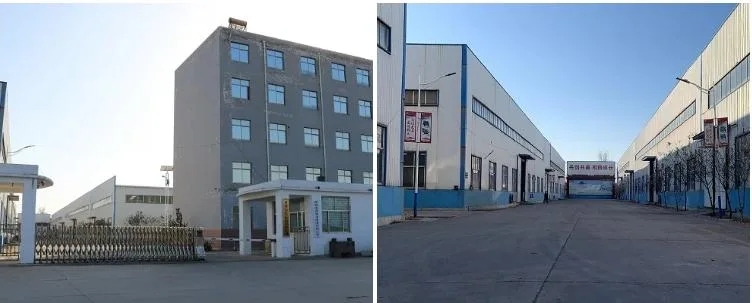Introduction
Diesel generators have been a reliable source of power generation for decades, especially in situations where a constant and uninterrupted power supply is essential. One of the key applications of diesel generators is for prime power, which involves providing continuous power for extended periods of time. In this article, we will explore the use of diesel generators for prime power applications, their advantages, considerations, and best practices for optimal performance.
Overview of Diesel Generators for Prime Power
Diesel generators are a type of internal combustion engine that uses diesel fuel to generate electricity. They are widely used in various industries, commercial establishments, residential buildings, and remote locations where grid power is unavailable or unreliable. Diesel generators are known for their durability, reliability, and ability to provide consistent power output over long durations.
Prime power refers to the continuous operation of a generator at varying loads for an extended period, typically 8 to 24 hours per day. In prime power applications, the generator serves as the primary source of electricity, rather than a backup in case of grid failure. This makes it crucial for the diesel generator to be robust, efficient, and capable of sustaining continuous operation without interruptions.
Advantages of Diesel Generators for Prime Power
There are several advantages to using diesel generators for prime power applications:
1. Reliability: Diesel generators are known for their reliability and durability. They can operate continuously for long durations without overheating or experiencing mechanical failures, making them ideal for prime power applications where a constant power supply is essential.
2. Fuel Efficiency: Diesel engines are more fuel-efficient compared to gasoline engines, resulting in lower fuel consumption and operating costs over time. This makes diesel generators a cost-effective solution for prime power requirements.
3. Longevity: Diesel generators have a longer lifespan compared to other types of generators, provided they are properly maintained and serviced at regular intervals. This longevity makes diesel generators a sustainable investment for prime power applications.
4. High Power Output: Diesel generators are capable of providing high power output, making them suitable for applications that require a significant amount of electricity on a continuous basis. They can easily handle heavy loads and power multiple appliances or machinery simultaneously.
Considerations for Diesel Generators in Prime Power Applications
While diesel generators offer numerous advantages for prime power applications, there are several key considerations to keep in mind to ensure optimal performance and reliability:
1. Sizing: It is essential to correctly size the diesel generator based on the power requirements of the load it will be supporting. Undersized generators may not be able to handle the load, leading to power fluctuations and potential damage to equipment. Oversized generators, on the other hand, can result in inefficient operation and higher fuel consumption.
2. Load Profile: Understanding the load profile of the application is crucial for selecting the right diesel generator. Prime power applications typically involve varying loads throughout the day, so the generator must be capable of adjusting its output to match the load requirements.
3. Maintenance: Regular maintenance is key to ensuring the optimal performance and longevity of a diesel generator. This includes routine oil changes, filter replacements, fuel system checks, and overall inspection of the generator components. Neglecting https://www.lkpowerplant.com/what-is-75kw-diesel-generator/ can lead to breakdowns, reduced efficiency, and costly repairs.
4. Fuel Quality: The quality of diesel fuel used in the generator can have a significant impact on its performance and longevity. It is essential to use clean, high-quality diesel fuel free from contaminants or water, as impurities can damage the engine components and reduce efficiency.
5. Environmental Considerations: Diesel generators produce emissions that can have environmental implications. It is important to comply with local regulations regarding emissions and install appropriate exhaust systems to minimize pollution. Additionally, noise levels should be taken into account, especially in residential or noise-sensitive areas.
Best Practices for Diesel Generators in Prime Power Applications
To ensure the reliable and efficient operation of diesel generators in prime power applications, the following best practices should be followed:
1. Regular Maintenance: Establish a comprehensive maintenance schedule for the diesel generator, including routine inspections, oil changes, filter replacements, and testing of critical components. Adhering to a maintenance plan can help prevent unexpected breakdowns and ensure optimal performance.
2. Load Testing: Periodically test the diesel generator under varying load conditions to verify its ability to handle different power requirements. This helps identify any potential issues or inefficiencies and allows for adjustments to be made as needed.
3. Fuel Management: Monitor fuel levels regularly and ensure that the diesel fuel being used is clean, free from contaminants, and stored properly. Implement a fuel management system to track fuel consumption, refills, and quality to avoid running out of fuel unexpectedly.
4. Temperature Control: Diesel generators are sensitive to temperature fluctuations, so it is important to maintain proper ventilation and cooling to prevent overheating. Install temperature sensors and alarms to monitor the operating conditions and address any overheating issues promptly.

5. Remote Monitoring: Consider implementing a remote monitoring system for the diesel generator to track performance metrics, fuel levels, and alerts in real-time. Remote monitoring allows for proactive maintenance, troubleshooting, and immediate response to any issues that arise.
Conclusion
Diesel generators are a reliable and efficient power generation solution for prime power applications that require continuous electricity supply over extended durations. By understanding the advantages, considerations, and best practices associated with diesel generators, users can maximize the performance, longevity, and reliability of their power generation systems. Proper sizing, maintenance, fuel management, and environmental compliance are essential factors to consider when deploying diesel generators for prime power applications, ensuring uninterrupted power supply and operational efficiency.
